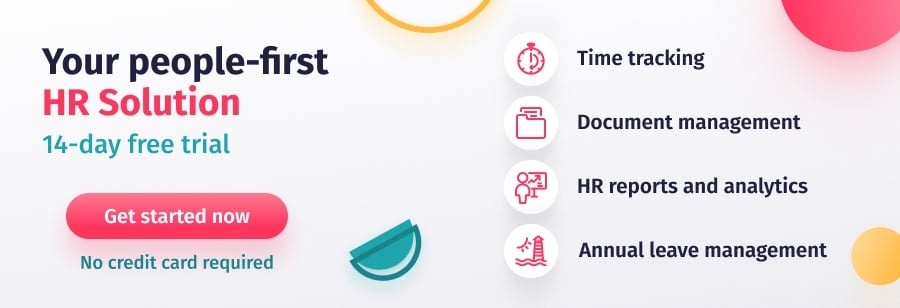Time management is a broad term that you hear used regularly. The OED defines it as: “the ability to use one’s time effectively or productively, especially at work”
With time being one of our most precious resources, it’s perhaps not surprising that learning how to manage it better is high on many people’s agendas, leading them to seek outside help, tools, advice and coaching.
A Google search for time management training produces around 2.3 billion results, which can be daunting. We’ve rounded up ten ideas to help you take those critical first steps in your time management training and get you started making changes.

[Fac_toc]
Considerations When Choosing Training
Before you dive into searching for time management training courses you come across, it’s worth taking some of that time you want to learn how to manage better to work out exactly what you want to get out of the course and what would benefit you the most.
Ask yourself the following questions:
What Type of Learner Are You?
Some people learn best through looking at images (visual), others by what they hear (auditory) and yet others use touch and doing (kinaesthetic). Of course, we learn through a mixture of these three different styles, but most people prefer one approach. Plenty of quizzes are available on the internet to help you work out yours. Knowing how you learn best is crucial in choosing a time management training course that you will find helpful.
What’s Your Focus Within Time Management?
Spend time thinking about the key issue you want to address, as this will allow you to tailor the training to meet that need. If you are good at meeting deadlines but want to stop procrastinating at the start of projects, then you will know to look for training that explicitly addresses procrastination. Common time management and scheduling issues include:
- Procrastination
- Perfectionism
- Difficulties with priorities
- Lack of organisation
- Over-promising and under-delivering
- Not delegating
- Trying to multi-task
- Getting easily distracted.

Is There an Emotional Impact?
People often do not realise how closely time management links to your emotional health and emotional intelligence. Think about how you feel in situations that lead to the time management issue you want to address and how you would like to feel. Often when we struggle with time management, we feel out of control, making us anxious, ashamed and frustrated (in other words, stressed).
Acknowledging that your emotions are part of your time management issues will ensure you find a time management course that speaks to you on a psychological and practical level. Getting the emotional support you need when looking at your time management skills will help make the training more valuable, impactful and is more likely to result in permanent changes in habits.
What Do You Want Out of the Course?
Knowing what you want to spend your time doing when you start a time management course is essential if it will be impactful. If you’ve had excellent training previously, or read a life-changing book on time management last year, maybe you are just looking for a quick refresher to get you back on your true time management path.
If your lack of effective time management is causing you to feel overloaded and burnout, maybe you need a course or coaching that goes deeper, lasts longer and is part of your overall focus on addressing more significant issues in your life.
How Do You Want To Receive The Training?
After considering what type of learner you are, knowing what kind of learning environment or resource you respond best to is crucial. An obvious first step is to decide whether you want to be (or can be) in person or take online courses and how important interactive learning is for you, where you can ask questions and have someone respond. If you have identified that you are happy to have training which does not involve interacting with the trainer, think about if a book, podcast, or set of videos would work best for you.
Benefits of Time Management Training
If you are reading this article, we’re sure you don’t need a list of reasons to convince yourself why time management training would be an excellent course of action. However, you might need to get your boss, or partner, on your side with the idea. Here are seven reasons time management training can be beneficial:
-
Productivity
This is a no-brainer. The better you manage your time, the higher the quality of your work. This practice may lead to increased output and improved quality for some roles and tasks. Good time management allows you to focus on the right task at the right time.

-
Clarity and Focus are Easier to Achieve
Good time management reduces feelings of overwhelm and panic, allowing you to think more clearly and focus properly on the task in front of you.
-
Reduced Stress
With time management training, you remove that sense of overwhelm and panic that can be created by daily tasks and put yourself back in the driving seat of your life. Feeling more in control of managing time helps to reduce stress and improve well-being.
-
Better Work-life Balance
If you manage your time and workload better, it should result in having more time for the things that are important in your personal and professional life because you are no longer constantly chasing your tail to get work tasks done. Good time management allows you to have stronger boundaries between work and play, which ultimately benefits you and the organisation you work for. Ensuring you have breaks means you are more likely to approach work feeling refreshed and invigorated and do better work as a result.
-
Improved Engagement
With good time management training, people not only feel that they have more time but also that they have a clearer focus allowing them the mental space to be more engaged in their role, the wider business or other aspects of their personal life.
-
Confidence
As we’ve mentioned, good time management skills allow you to feel more in control of your schedule and life, which gives you greater confidence that you can deliver what is being asked of you. Knowing you can deliver what is asked of you makes you more likely to take on new career challenges, which will help you grow as an individual and also benefit the business.
-
Benefits Relationships
Time management has a direct impact on relationships, both professional and personal. If you use your time effectively, you can deliver what is expected of you, which helps to develop a relationship based on trust. Having the foundations of a strong relationship makes it easier to learn from mistakes, take on new challenges and work collaboratively as a team on essential and important tasks.

Top 10 Options For Time Management Training
-
The Basics: Time Management Fundamentals on LinkedIn
You won’t be surprised to learn that LinkedIn has many online time management courses to choose from. Productivity expert Dave Crenshaw’s course on time management fundamentals gets rave reviews as a very good course that lasts under 2 hours. It covers three principles (space, mind, time) as well as providing tools to implement in your daily life, such as gathering, processing and time budgeting. There are also regular chapter quizzes to make sure you are fully engaged.
-
The Short Course: Time Management for Professionals
The online learning platform, Udemy, offers a super quick overview of time management which lasts 35 minutes, costs £35 (when not discounted), and covers “prioritise, plan, optimise and analyse” over 13 lectures. It’s a short sharp burst of techniques, which work either as a refresher or if it’s the first time you are exploring how to improve your time management skills
-
The In-Person Course: the Pitman Training Group
If you want to attend an in-person course, the Pitman Training Group has over 100 centres across the UK and Ireland. They offer a six-hour course which gets you a certificate at the end (and who doesn’t like a bit of recognition?). Prices on enquiry. It’s also worth asking colleagues or friends, and family for recommendations. Receiving training ‘in real life’ can be incredibly impactful as it is often more personal, but it does depend on getting the right course, so do your research.
-
Get a Coach: Clare Evans
Working one-on-one to improve your time management skills is a powerful (if expensive) way to make lasting change. A good coach will help you unlock precisely what is holding you back and help you develop new habits to effectively manage your time more productively. As with in-person training, personal recommendations are good if you can get them. If not, Clare Evans is a UK-based time management and productivity coach who offers a free ‘discovery’ call as a first step.
-
Watch a Ted x Talk: The Philosophy of Time Management
Managing your time better can be both about the details of every day and the bigger-picture objectives of your life. If you want to focus on the latter, Brad Aexon provides a short (12 minutes) and insightful talk about getting you approaching time management through the lens of what you want from your life.

-
Take a YouTube Course: Young Entrepreneurs Forum
There are plenty of other YouTube courses in time management training, so the site is an excellent resource for anyone with the self-motivation to upskill. The course from the Young Entrepreneurs Forum is naturally very business focussed. Each video is short and snappy and uses – as you would expect from video – plenty of imagery, so they work well for visual learners or those who are time-poor and want some basic reminders.
-
The Quick Tips: Hashtag Scrolling
We’re not joking; here’s a chance to use your social media habit to improve your productivity. Twitter and particularly Instagram and TikTok (think about its time-blocking trend in 2021) are excellent sources of bite-sized inspiration on time management if you follow hashtags such as #timemanagement or #procrastination.
Don’t get sucked down a rabbit hole where you lose too much time watching or reading posts that aren’t telling you anything new. We recommend using the time management technique of time blocking when you do the hashtag scroll.
-
Listen: It’s About Time
Hosted by time management coach Anna Dearmon Kornick, this weekly podcast It’s About Time – a Podcast about work + life + balance is usually around 15 minutes long (with longer episodes periodically) and covers everything from specific topics such as whether post-it notes are a good thing to how to build in self-care when work and family commitments threaten to overwhelm. Anna is open about her own experiences, which makes it more relatable than others – and remember that if you relate to something, it’s more likely to stick with you.
-
Read: Learn the 80/20 Rule
Published in 1999, Richard Koch’s book The 80/20 Principle: The Secret of Achieving More with Less latest edition was published in January 2022 and remains a classic text for those in the business world looking for strategies to rethink how they focus their work to be the most efficient. By using the 80/20 rule, the idea is that you manage your time to focus on the jobs that are going to deliver most of what you need to achieve.
-
Read: How To Use Your Time to Focus
One of the significant challenges in today’s world is the number of digital distractions that can stop us from managing our time effectively. Cal Newport’s book Deep Work: Rules for Focussed Success in a Distracted World is a good starting point if you want to revise your relationship with technology and how it impacts productivity. For some, the book is overly long, so his site, The Deep Life, can be more accessible.


